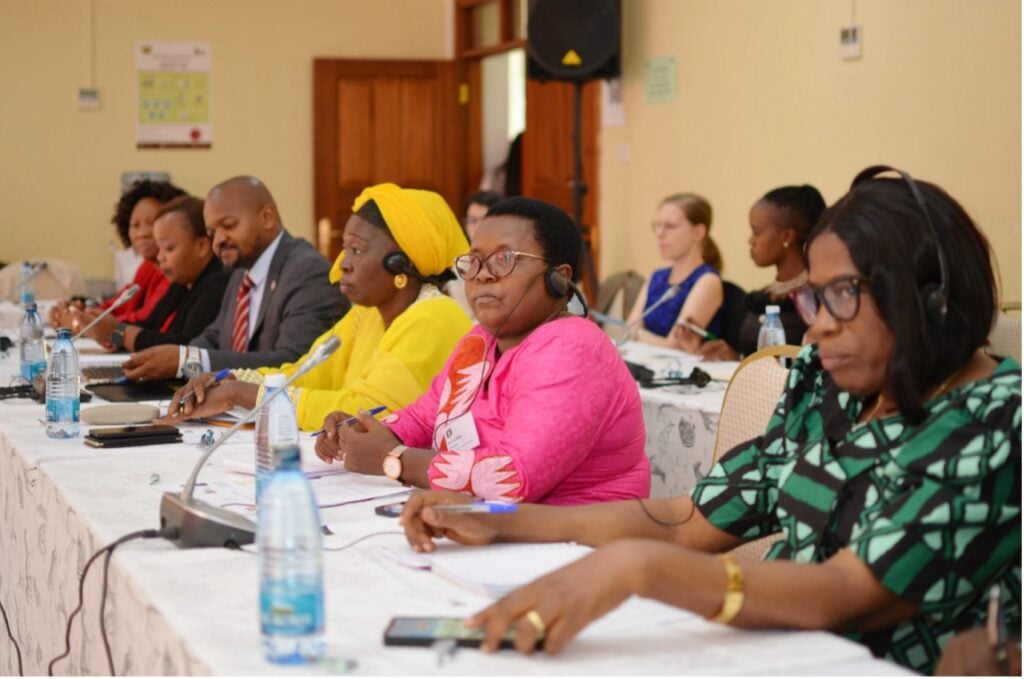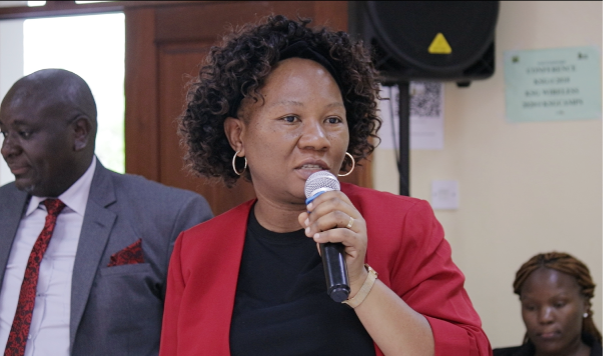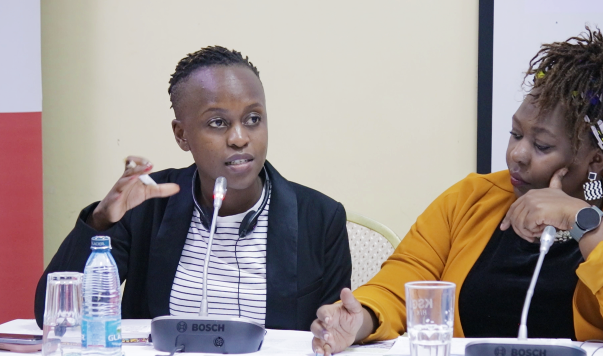As Africa faces overlapping political transitions and security crises, the need for inclusive, credible electoral and governance processes has never been more urgent. From 25 to 30 April 2025, civil society representatives from Burundi, the Democratic Republic of the Congo, Mali, Niger, and South Sudan gathered in Nairobi for a vital Community of Practice (CoP) organised by the Just Future Alliance.

The event focused on a bold agenda of identifying and sharing effective advocacy strategies across the entire electoral cycle, ultimately enhancing the capacity of civil society to support free, peaceful, and inclusive elections.
Watch this video of the event and meet some of its key participants:
Reframing Electoral Advocacy in Fragile Contexts
Teodora Nguen, Cordaid’s Security and Justice Expert, began the gathering by outlining practical strategies for multi-level electoral advocacy, from community mobilisation to global and higher-level engagement. Emphasis was placed on anticipating political momentum and adapting advocacy to shifting political landscapes, both of which are crucial strategies in volatile contexts.
A key partner in this initiative was the École de Formation Électorale pour l’Afrique Centrale (EFEAC). Led by experts such as Professor Ambroise Bulambo, Ronsard Malonda, and Clementine Sangana, the sessions framed electoral advocacy within the framework of law-based standards to highlight the entry points that civil society can exploit to promote peaceful and secure electoral environments.
They then examined the issue of inclusion in electoral processes, emphasising women’s leadership and participation. ‘Democracy cannot thrive without women and youth participating at all stages,’ Professor Bulambo stressed.
Grassroots Advocacy in Action
Representatives from Just Future Burundi provided a compelling example of grassroots advocacy in action, with women’s organisations successfully campaigning for 30% female representation on electoral commissions. This demonstrates that inclusive systems can be established through persistence and strategic alliances.
Furthermore, sensitisation is frequently seen as a fundamental prerequisite for advocacy. For example, in South Sudan, despite a 35% affirmative action provision for women, they still fail to meet even half of it, mainly due to limited access to education. ‘Inclusive electoral systems do not emerge spontaneously; they must be intentionally designed and advocated for,’ said EFEAC expert Clementine Sangana.
Learning from Lived Realities
Group sessions focused on experience-based learning. Participants explored the challenges of conducting secure and peaceful elections in unstable environments, identifying key public and private stakeholders and analysing the roles of election management bodies and security agencies. Insights from Kenya’s electoral experience, including youth-led movements and reforms, served as a case study in connecting policy with practice.
‘This Community of Practice allowed us to reflect on how we can adapt insights to our local contexts,’ said Claudine Tsongo, Coordinator of Dynamique des Femmes Juristes in the DRC.

Inclusion, Technology, and Legal Reform
Sessions led by EFEAC emphasised how electoral integrity is grounded in legal frameworks, from constitutions to informal agreements, and how civil society can use these frameworks for reform. Digital innovation was also examined. While technologies such as biometric registration improve transparency, they also pose risks, especially for women and young people, who often face online abuse that discourages political participation.
‘Technology must empower, not exclude,’ emphasised Maureen, a Kenyan digital democracy researcher. ‘Protecting digital spaces is essential to an inclusive democracy.’
Elections and Security: A Critical Link
The close link between peace and electoral legitimacy was a recurring theme. Vianney Bisimwa, Africa Director of the Centre for Civilians in Conflict (CIVIC), emphasised the importance of involving security actors as stakeholders in democratic processes. Addressing key questions about obstacles to peaceful elections, participants suggested solutions such as early warning systems, inclusive legal reform, and closer collaboration between civil society, electoral bodies, and state institutions.
Youth Participation: From Margins to Leadership
A youth-focused conference, co-hosted by the Kenya School of Government, concluded the week. With over 60% of Africa’s population under 25, young people are a demographic often marginalised but essential to democratic renewal.
Speakers such as Hon. Fikirini Jacobs, Kenya’s Principal Secretary for Youth Affairs, and Nerima Wako, Executive Director of Siasa Place, called for more profound and sustained political education, not merely civic awareness, to foster long-term engagement. ‘We must encourage young people to take on leadership roles to reshape our democratic culture,’ Wako asserted.

Karimi Janet, Executive Assistant of Siasa Place, stated: ‘Young people are often used as tools of violence due to marginalisation and are vulnerable to manipulation. They must also be recognised and supported as peacebuilders and leaders.’
Strengthening Collaboration through Play
As the Community of Practice sessions reached their peak, participants took a break to actively participate in a variety of interactive games that reinforced team spirit. These activities were more than just a break; they were strategic tools designed to enhance collaboration, foster trust-building, and promote effective communication among attendees. By fostering a relaxed environment, the session helped cultivate a stronger sense of unity and shared purpose.
Key Takeaways from the CoP Event
- Election processes can be viewed as a cycle, serving as a strategic advocacy tool rather than a single event. Civil society must engage from pre-election planning through to post-election justice.
- Youth and women, along with other marginalised groups such as IDPs, are vital agents of change and must be included as candidates, decision-makers, and peacebuilders.
- Technology offers both opportunities and risks; its ethical and inclusive application is essential.
- Security and democracy are mutually dependent; peace depends on the legitimacy of elections.
- In fragile contexts, civil society plays a vital role in safeguarding democracy through ongoing engagement, innovation, and strategic partnerships.
A Roadmap for the Future
As Just Future nears the end of its programme cycle, the Nairobi CoP was not just a retrospective — it acted as a forward-looking blueprint. It emphasised the urgent need for ongoing investment in inclusive political and electoral systems that mirror community realities and elevate youth leadership. However, meaningful participation will not arise spontaneously; it must be deliberately designed, championed, and safeguarded.
This Community of Practice (CoP) represented a pivotal moment of regional solidarity and knowledge sharing in Africa. Participants departed not only with new tools and strategies but also with a renewed sense of purpose.
